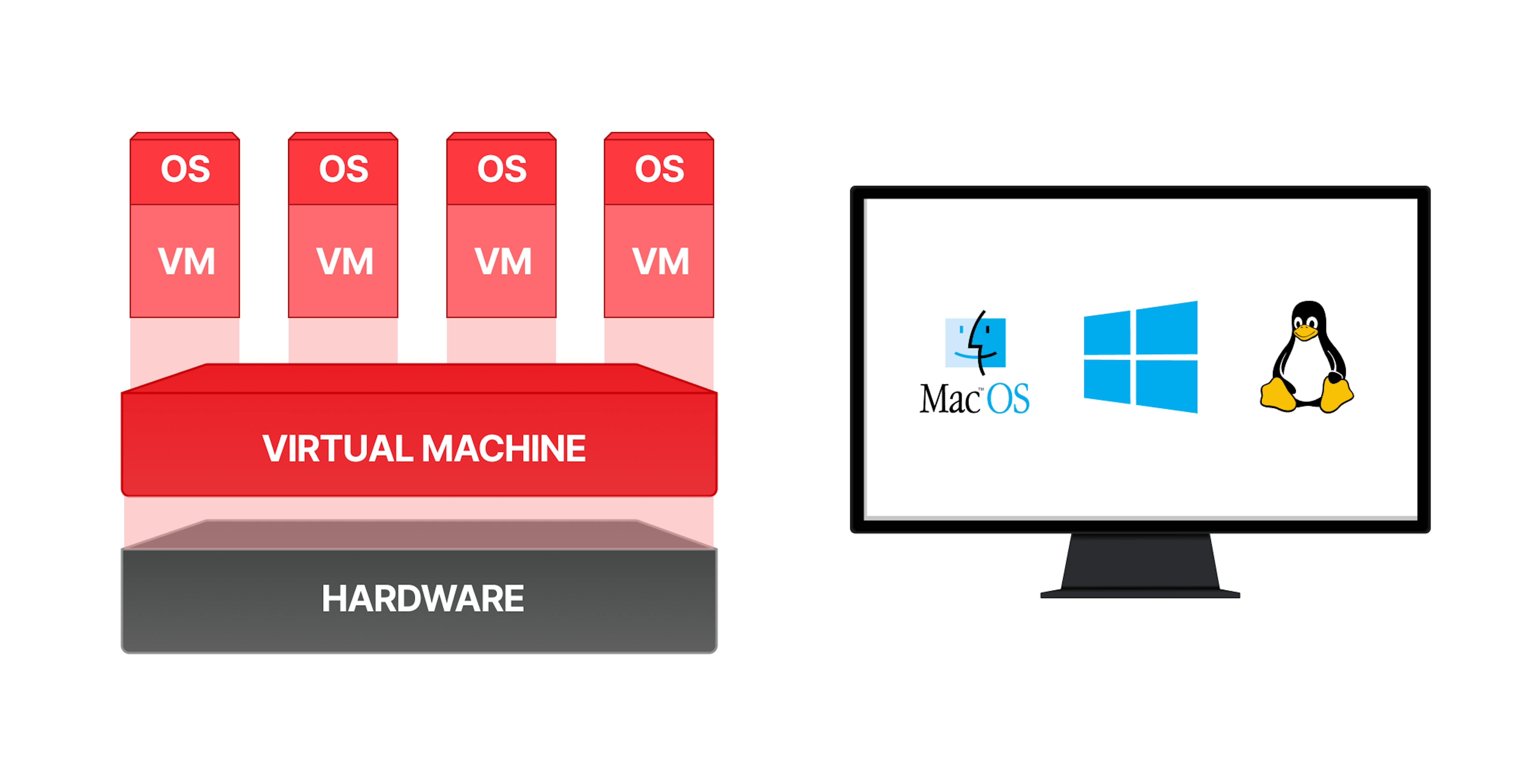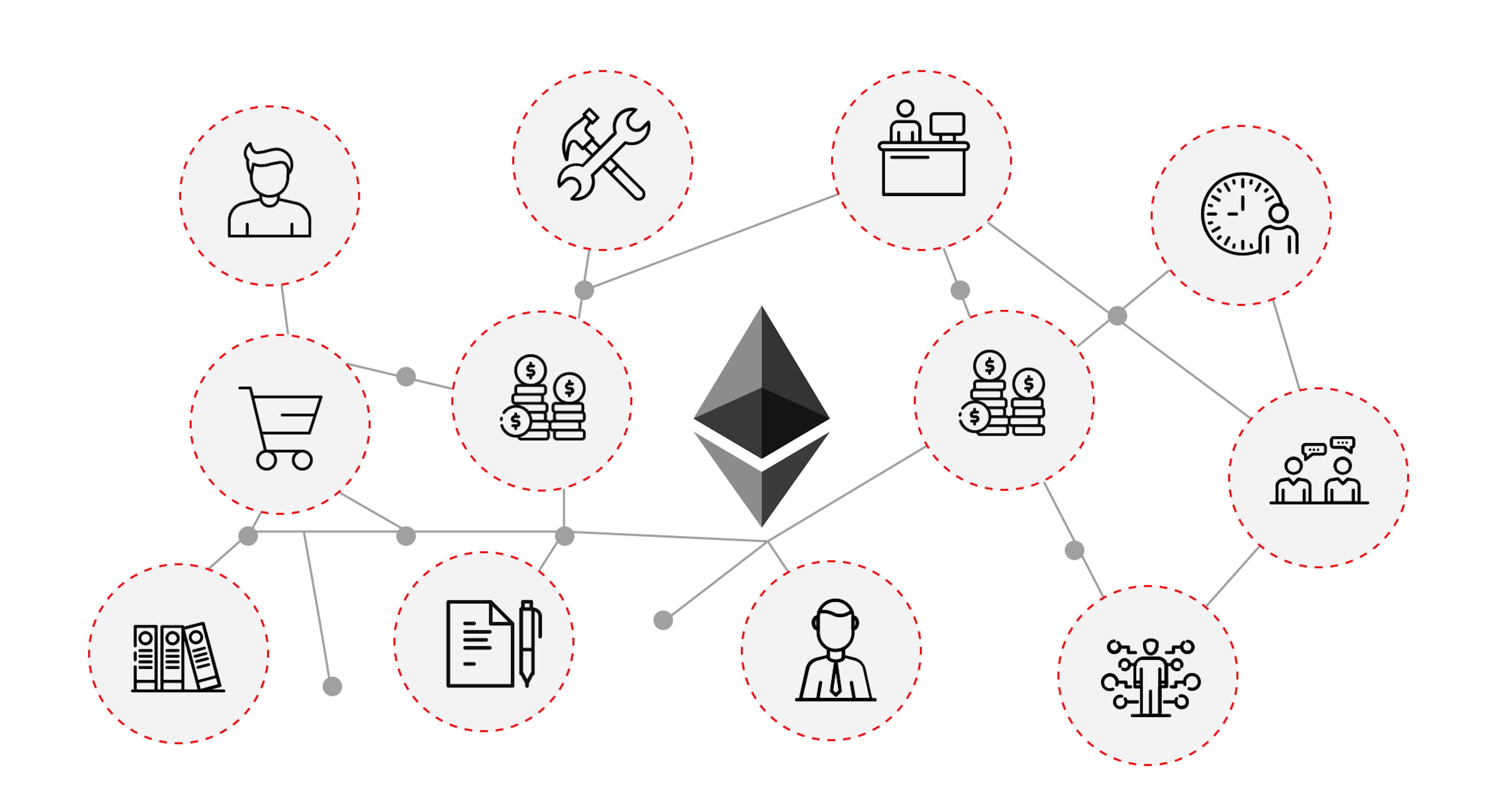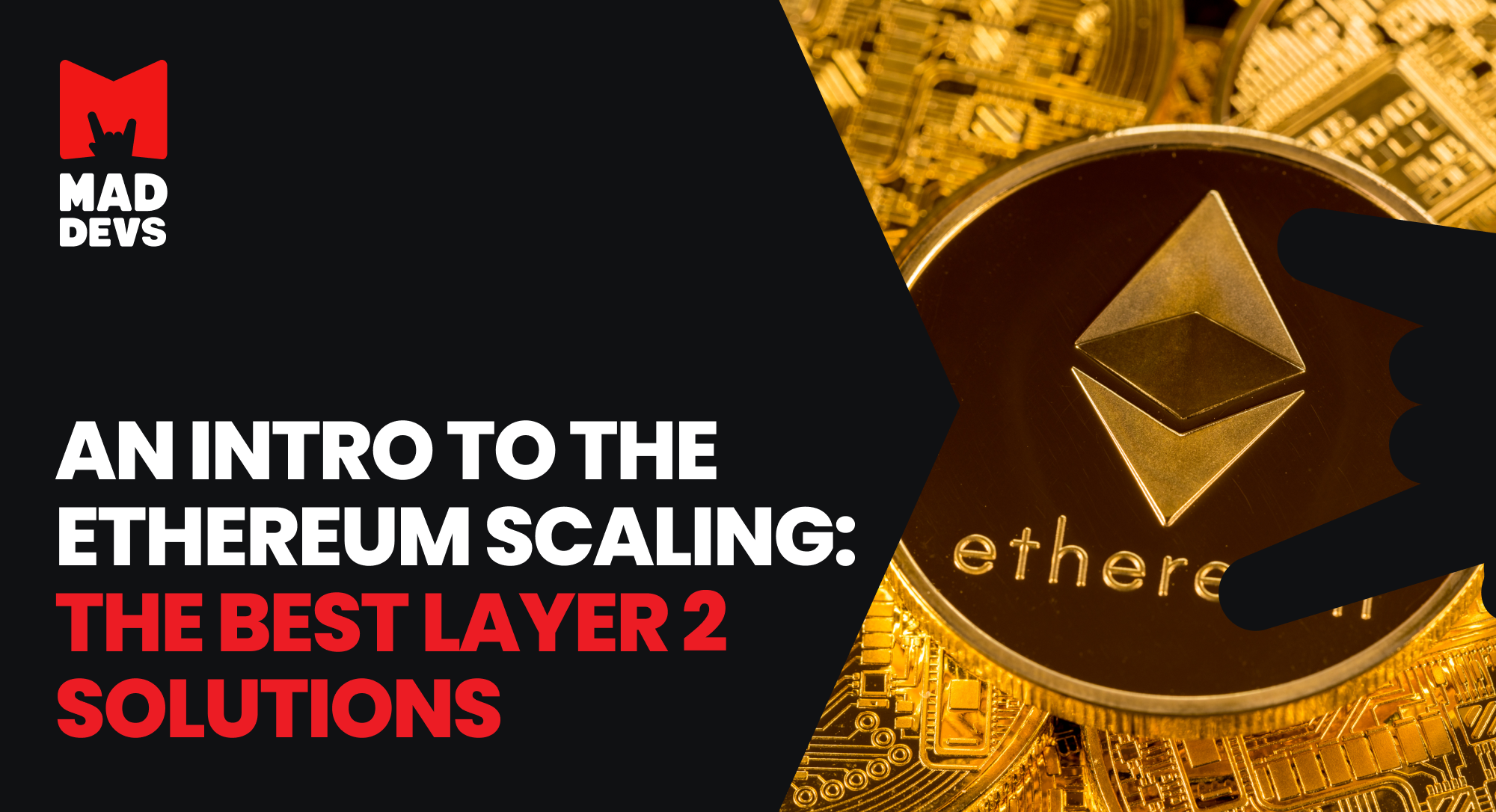Analyze with AI
Get AI-powered insights from this Mad Devs article:
Given the complexities of blockchain technology, it's easy to think of it as exclusive to programmers and cryptocurrency investors. However, these technologies have applications that extend beyond specialized niches. One such manifestation is the Ethereum Virtual Machine (EVM), which is slowly becoming mainstream in healthcare, gaming, and many other businesses.
In this article, we'll briefly explain the EVM and how it works. Then, we'll show how it has the power to change the future of business, education, banks, and information technology in general.
Quick introduction to the Ethereum Virtual Machine
Check out our glossary entry on the EVM for a detailed explanation. For the purpose of this article, it's enough to know that the EVM is a virtual machine distributed globally that acts as an environment for executing smart contracts that define data processing and exchange in the Ethereum blockchain.
Smart contracts are at the heart of EVM and ensure trusted and secure transactions. This is possible because a contract is distributed across the network through the blockchain and stored on every other node in it. Each time a transaction occurs, a small "gas fee" is paid to the blockchain. Gas refers to the unit of work used to measure how computationally expensive an Ethereum transaction will be. It's determined by the terms of a smart contract and paid in small amounts of Ethereum.
The EVM also serves as the platform for creating dApps, or decentralized apps, that allow users to interact with smart contracts on the Ethereum blockchain. Let's examine these a bit closer.

dApps
These apps are essentially the same as the apps you install on your smartphone or the web apps you open in your browser. Only they don't exchange data with a central server but via a blockchain network, and they use smart contracts to process data and implement various functionalities.
dApps can provide the same functionality as conventional applications and fully exploit decentralization's advantages, such as transparency, open access, constant uptime, and resistance to censorship.

Keep in mind that while the Ethereum blockchain and the Ethereum Virtual Machine are fairly mature technologies, decentralized applications are a more complex and high-level superstructure, and they haven't gained mass recognition yet. This means the technology has imperfections, and although dApps are better than standard applications in all respects, the lack of mass use has imposed limitations.
Benefits of dApps
dApps have several specific benefits, including:
- Security: If one communication node fails, the others take over its work. Thus, it's very challenging to completely shut down a decentralized application. They are more resistant to DDoS attacks, SQL injection, XML bombs, and Cross-site leaks (XSS).
- Censorship-free: In countries or areas where censorship is a problem and a threat to certain groups of people, dApps provide a safe means of sharing information.
- Transparency: With everything available to anyone, the risk of corruption and fraud is significantly reduced. Moreover, if implemented everywhere, smart contracts and dApps could eradicate these crimes completely.
- Confidential: Data is secure and safe from being stolen or sold because it's distributed among the network's participants, making privacy a reality.
Disadvantages of dApps
As mentioned earlier, dApps' shortcomings aren't at the heart of the technology but rather are an inevitable consequence of its lack of widespread adoption. As their use grows, improvements will be made over time, and these limitations are likely to cease to be relevant.
- No margin for error: Because basic smart contracts cannot be modified once deployed, developers need to plan and match future applications with dApps in detail from the beginning. Also, all transactions are irreversible, therefore, it's impossible to call support and return an entire EVM to its previous state at the user's request.
- Transaction fees: All network transactions require a network support (gas) fee. For those already supporting the network with a node, the fee will be small, but it's important to consider as it can be a disadvantage to some.
Building a business on the EVM

As stated earlier, smart contracts and dApps based on them are created and executed in the global decentralized EVM. Therefore, they all take advantage of its features and capabilities.
The many features that smart contracts inherit can take any industry to the next level. Given the ease with which users can interact with them, dApps have the potential to become a multi-billion dollar business. Let's take a closer look at how smart contracts can change entire industries and how dApps are already giving users access to this great technology.
Smart contracts in different industries
Smart contracts can be used in various industries and are incredibly beneficial for any business. They are often the solution to the long-standing problems in these industries and will increase quality and customer satisfaction.
Healthcare
This industry stands to greatly benefit from smart contracts by reducing the number of errors and the costs they incur on healthcare professionals. Smart contracts can be used to store and synchronize a patient's health information throughout their treatment and keep it confidential. They can also help streamline the insurance claims process and prevent counterfeit pharmaceuticals from being prescribed.
Lending
Smart contracts allow algorithms to be written into the network code, greatly facilitating payment history, security and fraud detection systems, automatic lending, etc. They also provide optimized control over the movement of assets and the ability to constantly monitor and identify the status of property left as collateral for mortgages.
Elections
The transparency and reliability of blockchain, combined with the functionality of smart contracts, are the foundations of the voting platform of the future. Solutions could be voting platforms for urban planning initiatives or presidential elections.
Entertainment
Smart contracts will once again make the commercialization of art an extremely transparent and lucrative business. This will be true for local indie artists and globally recognized artists too, both of whom have suffered from a lack of transparency in distribution revenues and piracy. The gaming industry has already done this with smart contracts that make every game artifact unique and secure. Thanks to the blockchain, digital art has become profitable for the first time in its history.
The internet of things
The IoT is growing extremely fast and gaining momentum every day. It needs a unified system to connect electronic devices and personal gadgets and function properly. Blockchain technology based on smart contracts is the ideal solution for these processes. After all, the correct operation of these systems is built on the flawless interaction of many conditions, which is the mission of smart contracts. This is especially important when an entire city's power supply system or transport system is built on it.
Rental industry
Renting a car, real estate, or anything else is very similar to some smart contract algorithms:
- Selecting an object to receive a lease
- Depositing a guarantee of the arrangements
- Payment for the lease with the possibility of renewal
Problems often arise due to the lack of a tool that guarantees the terms. Smart contracts will ensure the fulfillment of the terms, reduce associated costs, and save the time of all those involved.
Supplies
Supply is an area where you need to consider many factors that influence each other and ultimately affect the cost and relevance of supplies. Putting all of this data into a blockchain will make it much easier to process the data, eliminating possible errors and confusion, as well as the application of non-compliance measures.
Clearing
Clearing is an extremely complex and important system involving various representatives and requiring multiple conditions to be met simultaneously. This hasn't been helped as the world becomes more and more complex and requires an increasing number of interactions. There is vast potential in this niche for implementing smart contracts, and whoever does it first and best will reap the greatest benefits.
ICOs
An ICO (Initial Coin Offering) is one of the best examples of the use of smart contracts. The algorithms for smart contracts are prescribed as early as the development stage of the application and include the following:
- Fixing all investors: The system's algorithm independently identifies users who have invested their assets in the project and enters them into the general registry.
- Accruals: Users receive the required number of tokens automatically, thanks to the operation of a smart contract.
- Legitimacy control: Algorithms autonomously control the users' responses to the transaction.
Gathering investment and entering the market is always challenging due to high competition and investors' concerns about their funds. Smart contracts help create additional incentives.
dApps as new business drivers
Here's how EVM crypto projects have revitalized or changed some industries and created successful business niches.
Prediction and DEX markets
The prediction market is a business niche that has significantly transformed to expand with Ethereum and dApps. Prediction markets are decentralized exchanges where the objects of trade are not stocks and bonds but the results of various events. This may be a decentralized sports betting exchange that can bring its owners a fortune, and, now, several fortunes with the arrival of dApps. Examples of popular DEXs are Uniswap, Curve, Balancer, Sysem.io, DODO, Bancor, and Kyber.
They can also be used for different events that users themselves create for each other and make predictions about, for example, how many dogs someone will see during a car trip to another city. The terms of smart contracts are almost unlimited, and dApps provide this functionality to users without a technical background.
Lending in DeFi
Decentralized lending and borrowing apps are the second most widely used DeFi app. They allow users to lend or borrow crypto assets against cryptocurrency collateral without any restrictions, such as background credit checks. Some of the most popular dApps of this type are Compound and Aave.
Digital art auctions
One of the most popular applications of dApps is auctions and digital art, which were vulnerable before the introduction of this technology. That's why decentralized auctions were created. Each piece of art is unique, and the site itself is much less exposed to threats, can control the bids much more accurately, and guarantees accurate payments. Examples of such DApps include include Auctionity or Mintable, which have created a large community around NFT auctions and other digital assets.
Decentralized autonomous organizations (DAOs)
Decentralized Autonomous Organizations, or DAOs, are exactly what their name describes. Rather than relying on people and typical hierarchical management structures to operate, DAOs use smart contracts to execute decisions autonomously. Although DAOs can have many functions, they share a purpose and other characteristics. Examples include Aragon, Molochdao, and DXDAO.
Gaming industry
Very quickly, smart contracts found their way into the gaming industry, where it had been a challenge to protect the value of products without imposing all sorts of subscriptions and other rules on users. Piracy has also been and remains a problem for the gaming industry to this day.
Smart contracts have made user identification much more reliable and added value to many unique game artifacts. Gaming has always been one of the main drivers of IT, with examples including Alien Worlds, which grew from 10,000 users to five million in a year, and Sorare, a fantasy soccer game that runs on Ethereum.
Summary
EVM and Ethereum technology are set to continue transforming the technology market and other industries. Hopefully, we've succeeded in giving you a clearer understanding of its applications. If you want to implement an idea using EVM or blockchain technology or discuss the possibilities, Mad Devs has extensive knowledge and experience based on our enthusiasm for this technology. Contact us today to unlock our energy for you!










